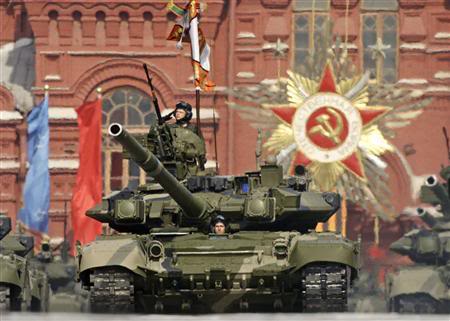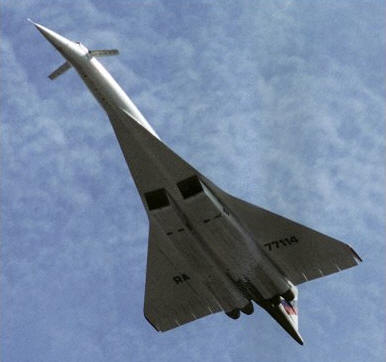|
YOUR SOURCE FOR NEWS AND ANALYSIS SINCE 1996 International News Analysis
THE DANGERS OF MISUNDERSTANDING PUTIN AND RUSSIAMarch 26, 2014 
Vladimir Putin is a man misunderstood. He has been called a thug, a schoolyard bully, and a tyrant without so much as an ideology. Putin's Russia is similarly dismissed. President Barack Obama describes Russia as merely a regional power, Patrick J. Buchanan says that the real problem in the world is China, and that eventually Russia will be forced to side with the West against an increasingly belligerent Peoples Republic. Senator John McCain displays ouright contempt for Moscow, referring to Russia as "a gas station masquerading as a nation." Unfortunately for the United States and the world, these images of Russia and its leader are not only overly simplistic, but they are dangerously misleading. 
Russia periodically gasses up its bombers and warships and sends them into the Western Hemisphere. Its spies are operating in the United States at what the FBI describes as a Cold War intensity. In Asia, the Russian and Chinese military work closely together. So much for the supposed fear of Chinese expansion into the Russian Far East. No one doubts that Russian leader Putin is ruthless and deadly, but he acts not from simple sadistic capriciousness, but out of a determined loyalty to the idea of a rebirth of Communism (specifically Marxist-Leninism). MARXIST-LENINISM???The term is important, even though to many readers it may cause the eyes to glaze over. Simply put: Karl Marx writing in the mid-19th Century thought the Communist Revolution was inevitable and would come about spontaneously throughout the industrial world. Lenin in the early 20th Century saw that no mass revolution was going to happen. In 1903, Lenin wrote a book entitled What Is To Be Done in which he changed Marxist ideology. Lenin declared that the Revolution would come about only if an elite group would guide the working masses. Lenin's change to Marxism is now an essential part of all major forms of Communism. The concept of rule of the elite has also become a necessary, but unspoken, element of American liberalism. About a decade before the Russian Revolution, Lenin split the small Social-Democratic party into two factions. Lenin's group held the majority and called themselves the Bolsheviks, the other faction, the Mensheviks. For various reasons, including pitiless cruelty, Lenin's brand of Communism in October 1917 (old Russian calendar) overthrew the Provisional Government, which had assumed control of Russia after the abdication of Tsar Nicholas II. Lenin's Bolsheviks were a small minority and could have easily lost power. To avoid such a turn of events, Lenin resorted to political terrorism on a scale never before seen. PUTIN THE CHEKISTTo protect his position as Russia's new ruler, in December 1917 Lenin established an internal police structure known as the Extraordinary Commission for Combating Counter-Revolution and Sabotage, or "Cheka" for short. The Cheka's head was a Polish nobleman turned revolutionary, Felix Dzerzhinsky. The mission of the Cheka was to defend the Communist Revolution and to destroy its enemies. Dzerzhinsky carried out his task with stunning brutality and efficiency. The Cheka developed what became a legendary reputation for kidnaping, torture, and murder. In its first years of operation, Cheka victims numbered in the hundreds of thousands. Although officially dissolved in 1922, the Cheka's methods and mission continue to the present. All current and "retired" Russian intelligence officers consider themselves as Chekists. Today, Russia is controlled by the Chekist Putin, and his spy associates. Russia is, in reality, a "spyocracy." Putin has honored spies who worked for the Soviet Union, including the infamous Kim Philby. The insignia for the Cheka, as for the later and more familiar KGB, was the sword and the shield, both wielded for the defense and advancement of the Communist Party. The Chekists have been there for the founding of the USSR, its dissolution, the establishment of the "new" Russia, and, now, for the metamorphosis of Russia into a new Marxist-Leninist entity. COMEBACK FOR THE EVIL EMPIRETwo key words are "integration" and the "near abroad." The second term refers to those now independent states that were once part of the old Soviet Union, and, it should be recalled, were also part of the Tsarist empire. The first term is used by the Kremlin to refer to the process of bringing the "near abroad" back under Moscow's leadership. Putin and the rest of the Moscow elite take integration seriously. How seriously is indicated in a 2012 statement by Putin before officially beginning his second presidential administration. As reported by the Russian news agency RIA Novosti on its Russian language website, then-Prime Minister Putin addressed the lower house (Duma) of the Russian parliament and declared that a "key objective of Russia's foreign and economic policy" is the "integrated construction" of the "post-Soviet space." "For us, there is nothing more important," Putin declared, adding that "our future depends" on integration. Putin considers the collapse of the Soviet Union the "greatest catastrophe of the 20th Century," and "integration" is the method for the Moscow spy-elite to rectify this "catastrophe." Ukraine is a central part of the integration process, which prompted Moscow's violent reaction to the pro-democracy movement which threw out Moscow loyalist Viktor Yanukovich. Ukraine had been one of the original founding members of the old Soviet Union, with close historic, social, economic, and even military ties to Moscow. Ukraine is a prize which Putin and the Moscow elite are not ready to lose THE BIG PICTURE AND LAUGHABLE SANCTIONSPutin and the Moscow elite are thinking in wider terms than simply the return of the Soviet Union. Moscow is supporting, in one way or another, every anti-American regime in the world, from North Korea to Iran. Moscow is an important ally of the Latin American Communist states, particularly the shaky regimes in Cuba and Venezuela. Most importantly, however, Moscow has a tight alliance with China. From planning a New World Order to joint military exercises and even a proposed shared lunar base, Russia and China are supporting each other – all to the detriment of the United States. 
The partnership with China alone makes the tepid sanctions so absurd that they are considered "jokes" by the Moscow elite. The sanctions do not even directly touch Moscow's version of Silicon Valley, the large high tech Skolkovo research area near Moscow. Skolkovo benefits greatly from U.S. investment and direct technical assistance from various U.S. silicon giants. It is a safe bet that lessons learned at Skolkovo are fed directly to Russia's near-by military high tech facilities. Putin is much more than some street thug. He and his spyocracy in Moscow have a plan for Russia, Ukraine, and the world. This plan does not include the United States in its present form.
or use our snail mail address: International News Analysis #171 2364 Jackson St., Stoughton, WI 53589 Mr. Westerman is the editor/publisher of International News Analysis Today (www.inatoday.com.). International News Analysis
Return to INA TODAY.com homepage |